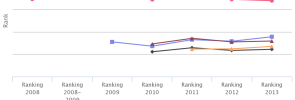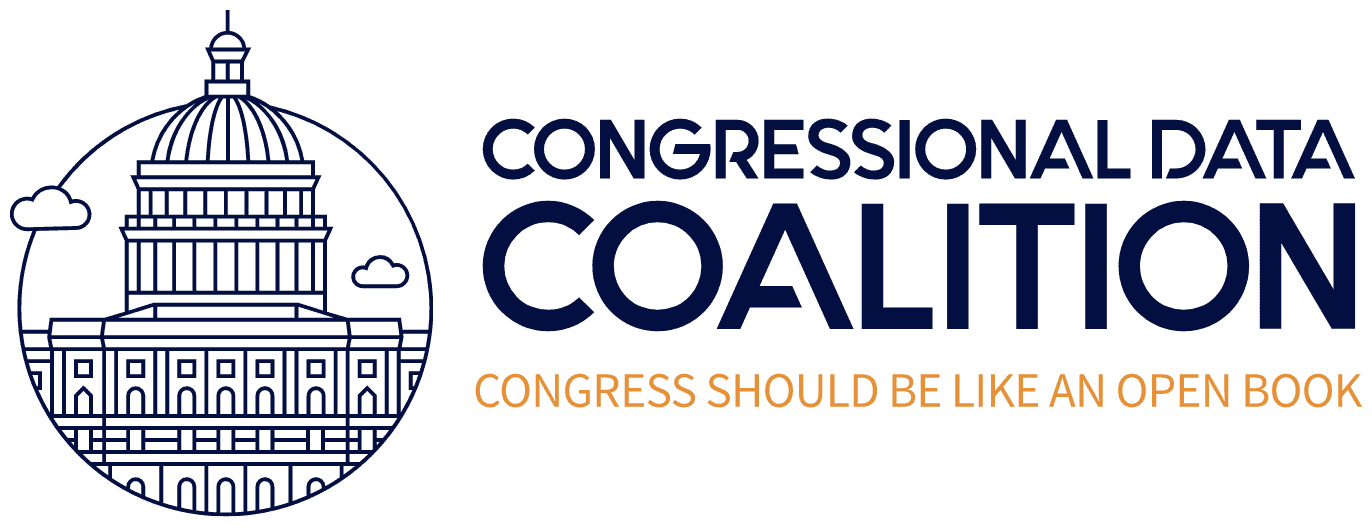(Cross-posted from CREW) Last week, the House of Representatives held its third annual Legislative Data and Transparency Conference. The full-day symposium, which took place in the U.S. Capitol, featured speakers from inside and outside government who discussed efforts to make more legislative information available to the public, particularly in machine-readable formats. The event was sponsored […]
Continue reading...Transparency and Legislative Data Happy Hour
On behalf of the Congressional Data Coalition, you are invited to a Transparency and Legislative Data Happy Hour this upcoming Thursday, May 29, from 5ish to 7. We will get started right after the House of Representative’s 2014 Legislative Data and Transparency Conference ends. Location: Bullfeathers, on Capitol Hill, just south of the Cannon House […]
Continue reading...Democracy and open data: are the two linked?

Are democracies better at practicing open government than less free societies? To find out, I analyzed the 70 countries profiled in the Open Knowledge Foundation’s Open Data Index and compared the rankings against the 2013 Global Democracy Rankings. As a tenet of open government in the digital age, open data practices serve as one indicator […]
Continue reading...Congress at a Glance
What is Congress doing this week? The answer to this question—an assortment of hearings and markups in the House and Senate—is surprisingly difficult to find. A few publications sell this information to congressional insiders with money to burn, but only recently has a comprehensive free source of this information become available. The privately-run congressional website […]
Continue reading...Congressional Data Coalition asks Senate to publish legislative info in digital formats
Earlier today, the Congressional Data Coalition submitted testimony to the Senate Appropriations Committee on improving public access to legislative information. The coalition made two requests. First, we asked the Senate to concur with legislative language passed by the House of Representatives and direct the secretary of the Senate to work to implement bulk access to […]
Continue reading...Federal News Radio interview on the Congressional Data Coalition
Earlier today, Emily Kopp of Federal News Radio interviewed Congressional Data Coalition chairman Daniel Schuman about the launch of the coalition and a recent victory in the House of Representatives. Listen here.
Continue reading...Public access vs. open access
“Doesn’t Congress already make its information publicly accessible?” That’s the question I hear most frequently when I tell people about the Congressional Data Coalition’s mission to get Congress to provide open access to its data. “Open access” is a complicated and loaded term in the digital information world, but at its core it involves three […]
Continue reading...Big step for public access to legislation
Earlier today, the House of Representatives’ Appropriations Committee made a major move towards improving public access to legislative information. In layman’s terms, the committee said that by the beginning of the next Congress information about the disposition of bills—where they are in the legislative process and who authored or co-sponsored the legislation—will be published in […]
Continue reading...US Statutes at Large: Essential to understanding our laws and legislative history
One of the benefits of the Congressional Data Coalition has been our ability to collaborate on mutual projects of interest. CDC members recognize that reusable, cleaned-up legislative information, especially the laws themselves, is essential for both the legislative data community and the public. Unfortunately, at least some information will likely not be provided by Congress […]
Continue reading...Op-ed: To make Congress more accountable, make it more open
Daniel Schuman and I have a new op-ed on legislative data in The Hill: Nearly two decades ago, Congress began publishing some of its activities online, revolutionizing access to essential public information. The system was called THOMAS, after our third president. Managed by the Library of Congress, it aimed to serve as a central hub […]
Continue reading...